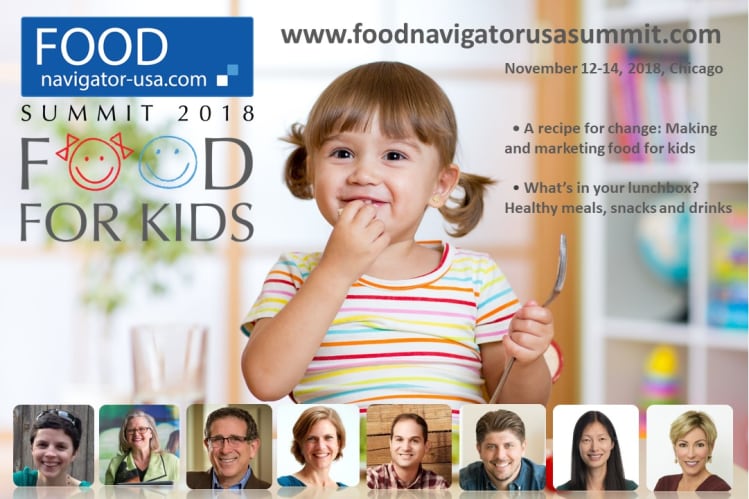The key is to understand the different kinds of human persuasion that matter to growing a premium food/beverage business and utilizing them properly, so that the right consumers receive a smart story that primes them not just to try the product but literally feeds them in advance the brand-outcome associations required to support a long-term consumption habit. If done right, the story will also alienate the wrong consumer.
Believe it or not, most adult consumers are very discerning taxonomists of modern food culture. They shop based on hundreds of category-benefit associations learned (and constantly updated) in the broader social environment (not necessarily from your package). Then, they have to select a brand, unless they have an exclusive relationship to one in the category.
It’s the last part where persuasion needs to be especially fine-tuned in highly competitive categories full of feisty start-ups.
The art of persuasion
There are two primary modes of persuasion relevant to food/beverage marketing: 1) persuasion to try your product and 2) persuasion to habitually consume it (repeat purchase).
Persuading trial is based on purely symbolic information, including symbolism of the sensory experience. Symbolic communication of taste is also fundamentally imperfect.
This is why shipping a product to stores by itself (and without much support) has a very difficult time, on its own, disrupting a consumer’s current shopping habits in the category. Hence the need to ‘up the influence.’
Persuading habitual consumption is both a sensory and symbolic process, where a brand really finds out if it has achieved anything other than mere attention-getting. And this is where many founders fail to listen carefully to their early consumers’ feedback to optimize their attempts at influencing the right kind of trial, from what I would call: consumers highly predisposed to become heavy users…and fans.
Tools of real influence
Sorry, but I’m not starting with Instagram, folks.
That’s because the research I’ve reviewed suggests strongly that the vast majority of ‘influence’ related to trial and repeat of new food/beverage products occurs offline..…still.
And also, because paid social media, like all paid media, is primarily an awareness building tool for emerging brands. It is very weak in generating trial for them (or it takes many, many repeat impressions to pull it off).
So what does work?
Word of mouth marketing in ordinary life situations: Early adopters often extol the virtues of new, value added products with close friends, family and colleagues likely to be interested in the same thing. They do this when opportunities arise to do so. Often, this happens accidentally, when they simply consume it on occasions where the new product is observed by others. Conversation begins around, 'What is that?'
Consumers then get to spin a narrative about why they tried it out. These initial comments generally revolve around benefits/outcomes and can be the raw material of marketing campaigns later on…the early consumers are literally testing out persuasive storylines.
But ordinary consumption occasions remain the key social theatre where premium food/beverage brands must make their case to win trial with highly lucrative, niche audiences. This is why activating scrappy word of mouth marketing campaigns is critical to growth acceleration. Extolling the virtues of your new mycoprotein, low carb energy bar won’t persuade your grandmother to try one but may garner intense interest among your triathlete friends when they see you munching it pre-race.
Among your early fans, you can find influencers already doing influencer marketing for you. The key is to feed that behaviour.
Direct-to-consumer sampling: Since not all food/beverage products necessarily have the best sensory symbolism (i.e. kale chips, chia pudding, etc.), one important way to jump start trial AND a consumption habit for such brands is to give away free samples to prospective consumers and let the mouth get them over this primary barrier.
When you lack a large, legacy trademark like Lay’s or Oreo’s, this is an important issue to recognize in the food and beverage space. This is why the fastest growing food and beverage start-ups tend to do lots of free sampling….lots….and not just at trade shows. The mouth is an incredibly powerful non-linguistic influencer.
Online word of mouth marketing: Believe it or not, consumers are more likely to try a new food/beverage if someone very close to them (offline) shows up online talking persuasively about your brand in a meaningful real-life situation.
Anything else tends to only build awareness and curiosity but less likely trial (for an unknown brand).
Online word of mouth marketing is particularly well suited to accelerating awareness and trial within highly specialized lifestyle niches that already exist and interact offline, but which don’t meet daily offline.
The more the ‘page’ is simply public and generalized, though, the less likely it is going to be a persuasive medium vs. in-group posts. In sum, online persuasion/influence operates best in real offline social networks that also happen to have an online presence. Find a way to gain entry to such groups authentically, usually through your early consumers.
The takeaway
Founders of emerging brands should develop deep relationships with select early fans so they can cultivate both off-line and online conversations that support an intelligent competitive strategy. The key is uncovering the high value fans who intuitively get why you’re competitively different.

James F. Richardson, Ph.D. – formerly senior VP of knowledge and innovation at Hartman Group - is a growth strategist for emerging food and beverage brands and founder of Premium Growth Solutions, a consultancy for entrepreneurs and investment firms focused on the premium end of retail food and beverage. Contact James at james@premiumgrowthsolutions.com to get an invitation to his monthly white-paper series – PGS Monthly.


